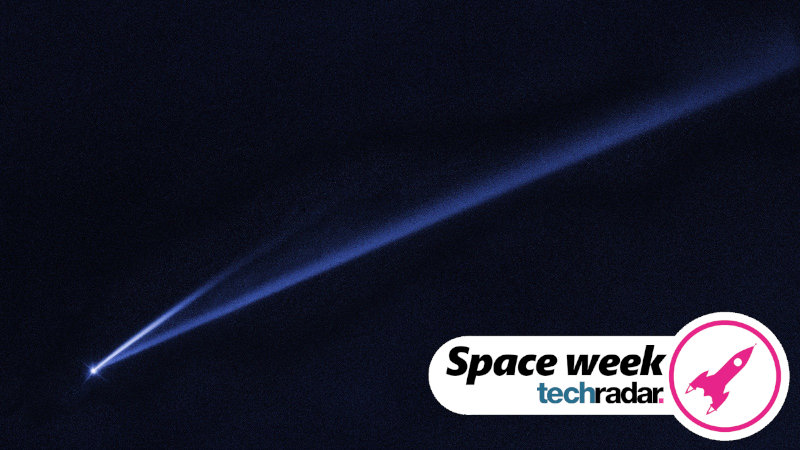
A team of astronomers has identified a rare case of an asteroid spinning through space, breaking apart as it goes.
The initial discovery was a happy accident. Dr Ken Smith of the Astrophysics Research Centre at Queen’s University Belfast was hunting for exploding stars (supernovae) when he came across an object with a tail resembling a comet – but it didn't match any known records. Intrigued, he contacted his colleagues to investigate.
- Are we getting closer to finding 'Planet Nine'?
- NASA is planning six new space telescopes 'better than Hubble'
- How to photograph the moon
Two months of study followed, and the results have now been published – including images from the Hubble Space Telescope that clearly show a trail of material that was ejected in short bursts in October and December 2018.
New telescopes, new discoveries
The asteroid, named Gault, is spinning twice every hour – so fast that rock and gas is being flung from its surface into space. The researchers believe that heat from the sun has gradually made it rotate faster, and its spins have been gradually accelerating for over 100 million years.
The two bursts of material late last year could have been caused by something as small as colliding with a pebble.
"This self-destruction event is rare," said Olivier Hainaut, from the European Southern Observatory, Germany.
"Active and unstable asteroids such as Gault are just now being detected because of new survey telescopes that scan the entire sky, which means asteroids that are misbehaving such as Gault cannot escape detection anymore."
Sign up for breaking news, reviews, opinion, top tech deals, and more.
Via Queen's University Belfast


Welcome to TechRadar's Space Week – a celebration of space exploration, throughout our solar system and beyond. Visit our Space Week hub to stay up to date with all the latest news and features.

Cat is TechRadar's Homes Editor specializing in kitchen appliances and smart home technology. She's been a tech journalist for 15 years, having worked on print magazines including PC Plus and PC Format, and is a Speciality Coffee Association (SCA) certified barista. Whether you want to invest in some smart lights or pick up a new espresso machine, she's the right person to help.